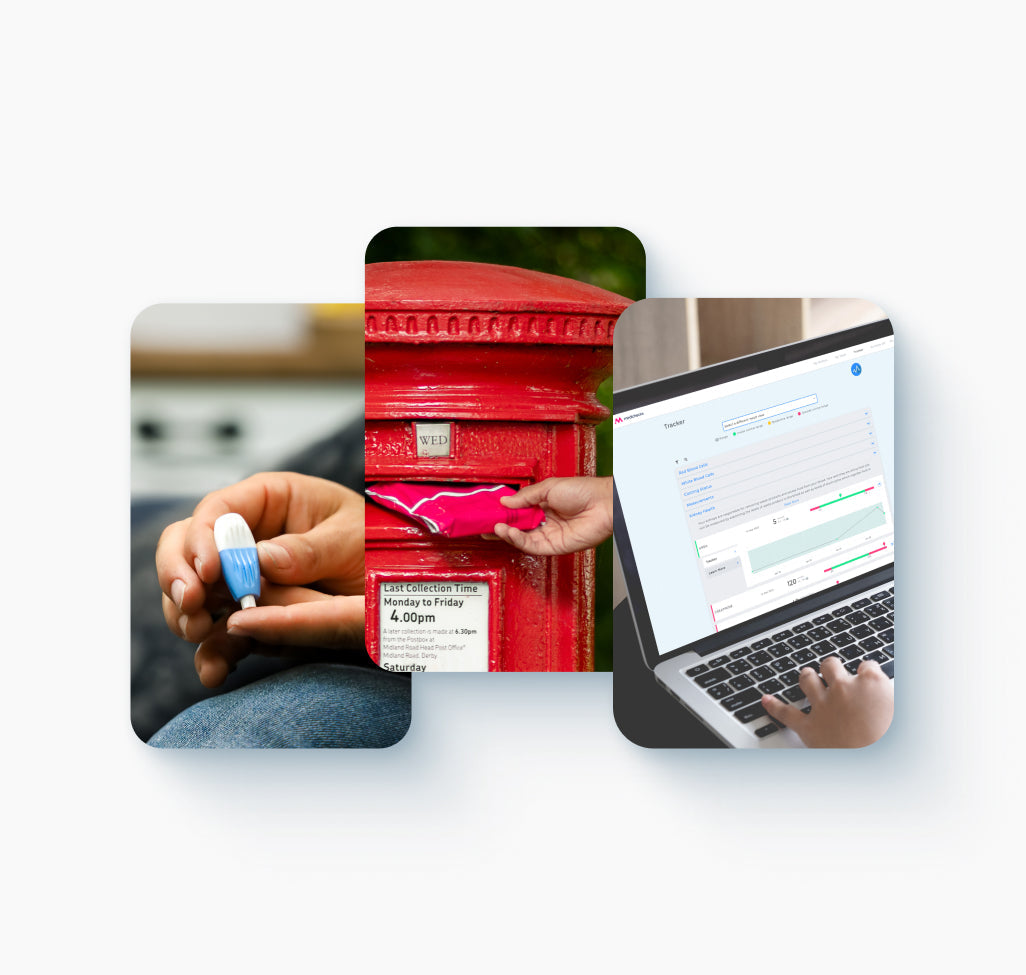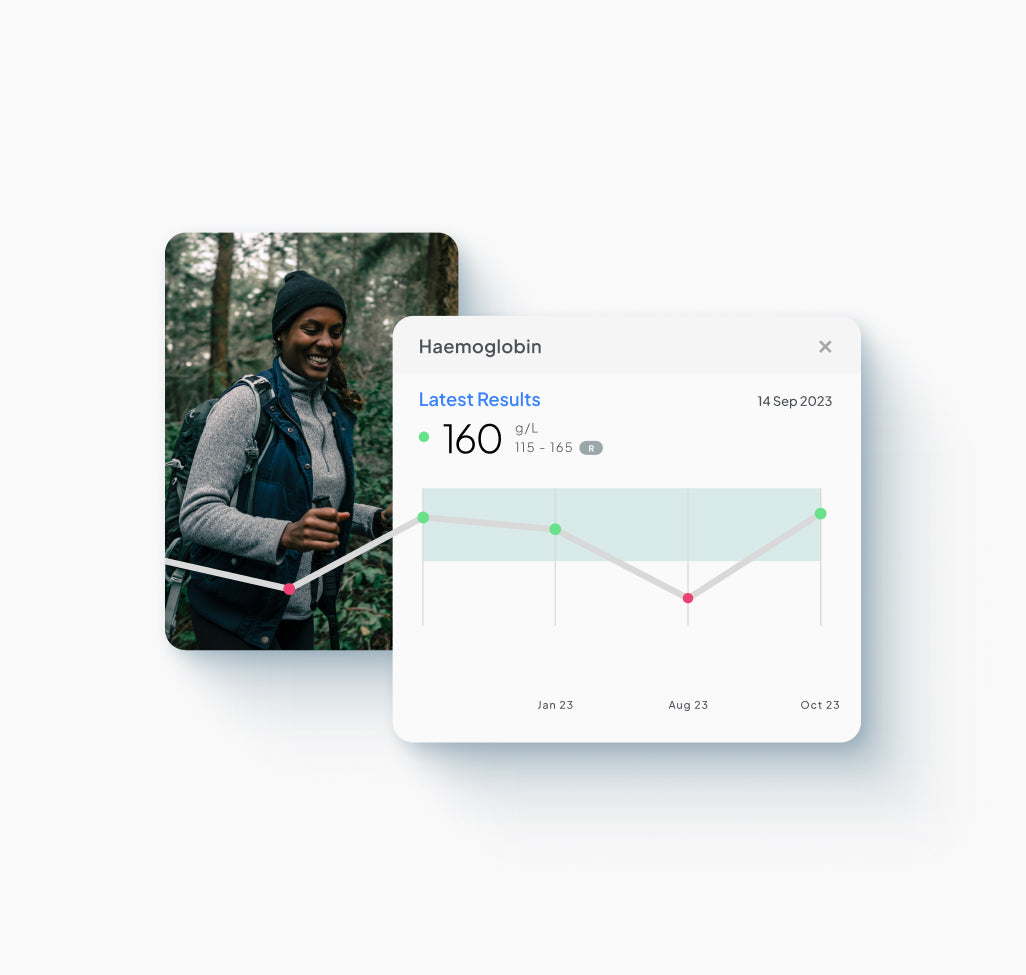Is it for you?
Do you take warfarin or another anticoagulant? Monitor your condition, clotting disorders, and bleeding problems from home with our Clotting Blood Test.
Do you take warfarin or another anticoagulant? Monitor your condition, clotting disorders, and bleeding problems from home with our Clotting Blood Test.
PT
Learn more
APTT
Learn more
Fibrinogen
Learn more
INR
Learn more

Your personalised, actionable health results are only a few clicks away. Order your test, take and post your sample, then view your results online with our doctors' comments.

MyMedichecks is your personal online dashboard where you can view your results, access clear and simple explanations about individual health markers, monitor changes in your health, and securely store information about your medical history, lifestyle, and vital statistics.
Clotting (or coagulation) tests often monitor people taking anticoagulants - medications that decrease the blood's ability to clot. Often, anticoagulant medications are prescribed if you have a heart attack or stroke. People with irregular heartbeats may also take anticoagulants to prevent a first or recurrent stroke.
Our test evaluates the clotting tendency of blood and the time it takes for clots to form using the standard measures of prothrombin time (PT), APTT, and the International Normalised Ratio (INR), which comes from PT. INR typically helps to inform dosage for those taking anticoagulants and to monitor progress over time.
Some conditions can prevent blood from clotting properly, either causing the blood to clot too quickly or causing blood clots to remain in the body for too long.